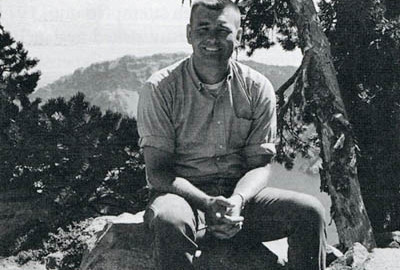Things you can’t know until you get there.
Yes. I was really disappointed.
Has limnology since flowered or has it always taken a back seat to fish?
It’s always taken a back seat. I think Stan Gregory is the limnologist at OSU now.
I took some courses in oceanography and I was very impressed with the faculty and the courses. They were demanding and were truly science courses. Some of them were a little over my head but I plowed ahead and got through. I took three or four courses in oceanography. I was forced to take three terms of Ichthyology from Carl Bond. It was descriptive stuff and I protested vigorously. Bond was on my committee and insisted that I take his three quarter course in Ichthyology. The first quarter was devoted to fish anatomy, where I actually had to boil a fish, remove all the skeletal parts, and glue them back together to construct a skeleton of this fish. I thought this was stuff that you might do as freshman or sophomore in college, so I was really disappointed. I wasn’t really getting hard science, like a course on the ecology of fish. That would be adequate because as a lirnnologist you have to know something about fish. They are part of the lake ecosystem, but to have to wade through three terms of ichthyology? As I said my favorite courses were in oceanography. They were well taught by guys like Larry Small
and Herb Curl. One of them made the [first] winter trip on Crater in 1971. I forget his last name.
I really didn’t like oceanography as a field, but thought boy, if they taught limnology like this, I would learn a lot. I picked up some other courses here and there, like computer science. I had to do German as a [required] language. Most of my field work was done in the summer. I ended up with 400 or 500 credit hours of coursework in my 11 years of college, if you can believe that.


